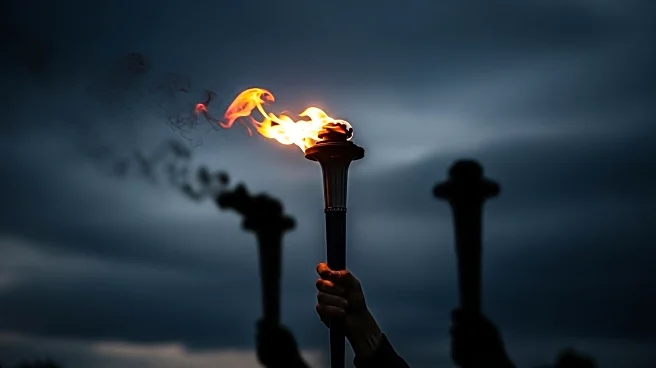What's Happening?
Federal prosecutors have charged Jan Carey, a 54-year-old military veteran from North Carolina, with two misdemeanor counts after he burned an American flag outside the White House. This act was in protest of President Trump's executive order directing the Justice Department to investigate flag burning. The charges against Carey do not directly pertain to the flag burning itself but rather to lighting a fire in a non-designated area and causing damage to property. President Trump's order seeks to challenge the 1989 Supreme Court ruling that protects flag burning as symbolic speech under the First Amendment. The order suggests prioritizing cases where flag burning violates other laws or incites lawless action.
Why It's Important?
The executive order represents a significant challenge to established First Amendment protections, potentially altering the legal landscape regarding symbolic speech. If successful, it could lead to increased prosecutions for flag burning, impacting civil liberties and free speech rights. The order also reflects President Trump's ongoing efforts to address issues he perceives as threats to national symbols and patriotism. The broader implications could affect public policy and legal interpretations of free speech, with potential consequences for activists and protestors.
What's Next?
The Justice Department, under Attorney General Pam Bondi, may pursue litigation to challenge the Supreme Court's 1989 decision, potentially bringing the issue before a more conservative court. This could lead to a reevaluation of the legal standards surrounding symbolic speech and flag burning. The case against Carey may serve as a test of the executive order's legal viability and its impact on future prosecutions.












